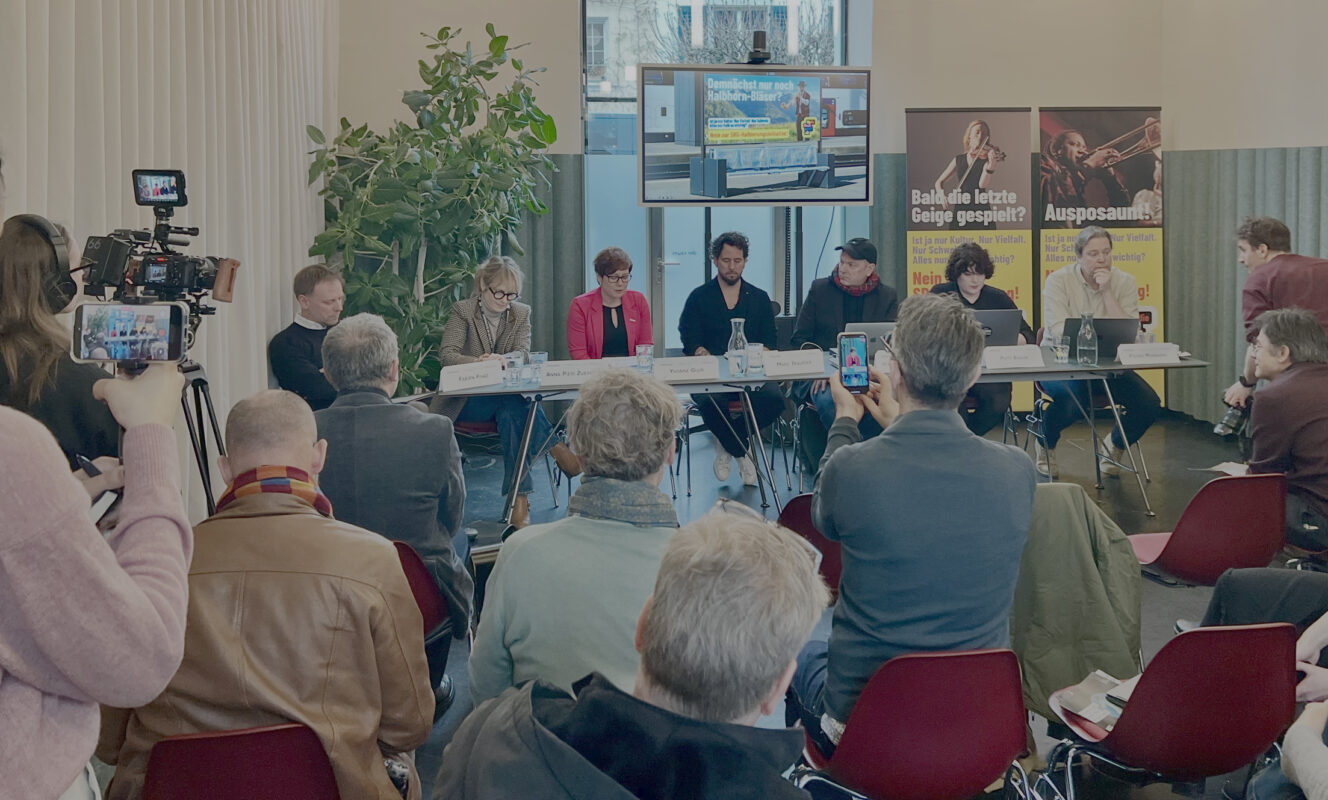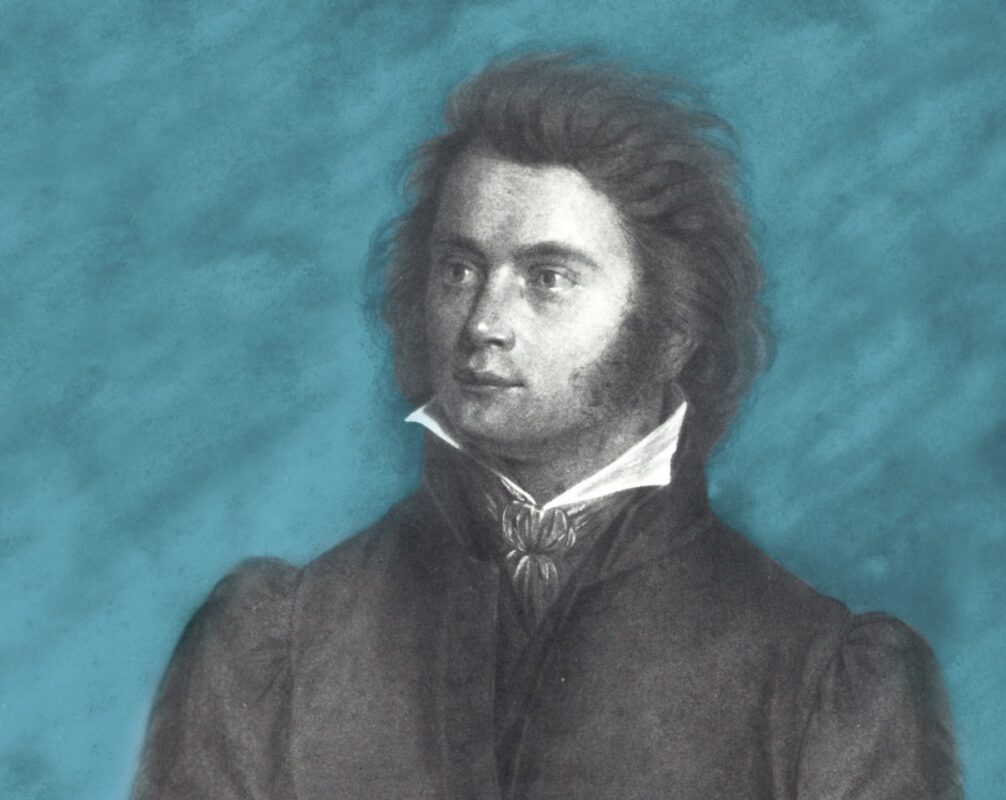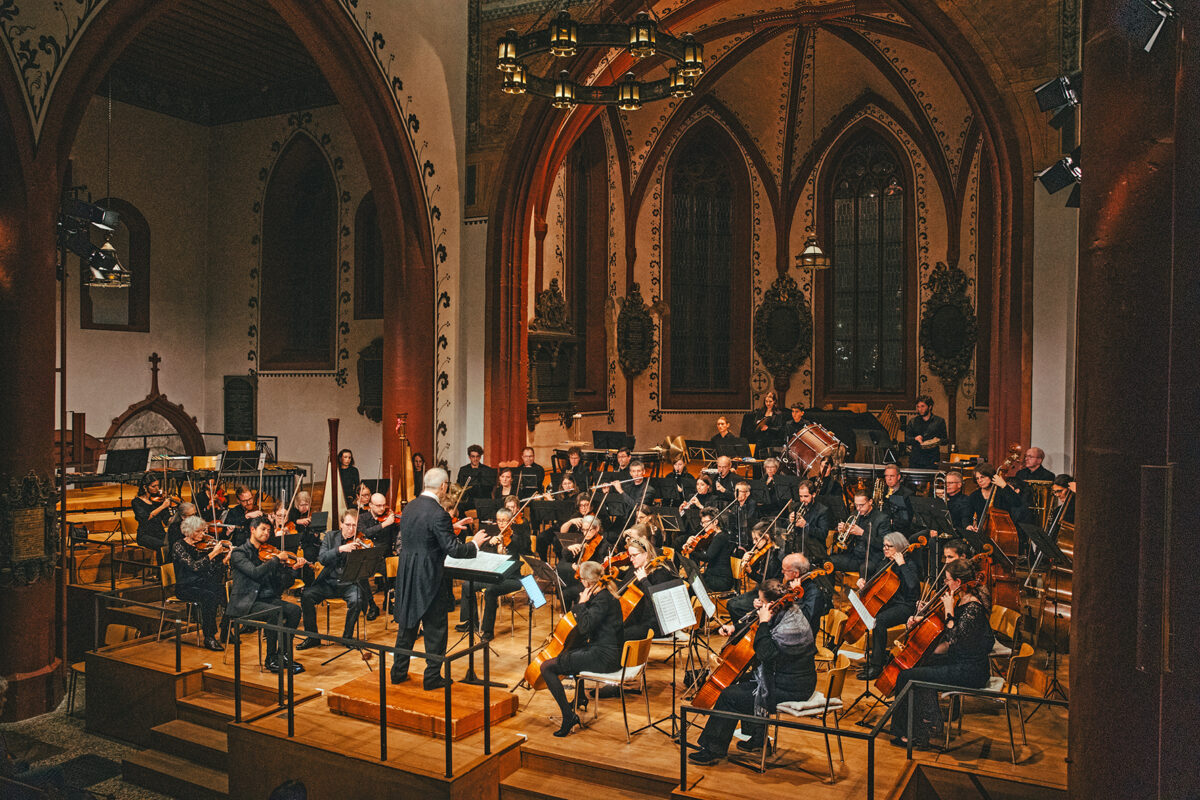Satisfied finish with a quietly irritating theme
A look at the Menuhin Festival in Gstaad from August 4 to 6. It is the last under the direction of Christoph Müller.

Balkan route - that sounds like mass flight and suffering, smugglers and the fear of uncontrolled immigration. "Balkan Route" is also the name of the concert program presented by Christina Pluhar with her ensemble L'Arpeggiata and guest musicians from the Balkans at the Gstaad Menuhin Festival in the sold-out church in Saanen, which was met with great enthusiasm. Here, the Balkan route becomes an exciting, sensual musical journey of discovery and tells the story of the people who live there. The title not only fits well with the theme of migration chosen by artistic director Christoph Müller for his last festival edition. It also plays with the audience's expectations and goes beyond the musical. It is precisely this added social relevance that Müller wants to achieve.
Western Balkans - Eastern Balkans
The world music evening is completely apolitical. No statements, no activism. The songs tell of longing and love, grief and death. They also radiate an irrepressible joie de vivre, like the Roma song Dumbala Dumbawhich Luciana Mancini turns into a party with her throaty voice and supple hip swing, fueled by the sensational accordionist Petar Ralchev and the creative percussionists David Mayoral and Tobias Steinberger. The Western Balkans route leads via Greece (the worn Are mou Rindineddha/Who knows, little swallow), Macedonia (So maki sum se rodila/I was born with pain) and Serbia (Gusta noćna tmina/Tiefe dunkle Nacht) to Croatia, which is accompanied by the sacred singing of Céline Scheen and Vincenzo Capezzuto. Panis angelicus (angel bread) from the 17th century.
On the Eastern Balkan route, Peyo Peev enchants with his virtuoso playing on the gadulka, the Bulgarian knee violin. The Arabic instruments oud (Kyriakos Tapakis) and kanun (Stefano Dorakakis), alongside the Greek lyre (Giorgos Kontoyiannis), also bring special colors to the largely improvised music, which only sometimes gets a little out of hand in the numerous solos. Christina Pluhar leads the multicultural ensemble on the theorbo with a subtle nod of the head. The five singers, including the particularly expressive Katerina Papadopoulo and Nataša Mirković, also provide a wide musical range.
Pleasing balance sheet over 24 years
Christoph Müller has not only made friends with his choice of topics. "There were indeed individual critical reactions at various levels. The topic of migration provoked individual people - and we exposed ourselves to the risk," says the outgoing director. After "Humility" and "Transformation", "Migration" is the final part of the three-year "Change" cycle. "After the pandemic and in light of the events of war and the rapid progression of climate change, I didn't want to and couldn't continue with the non-binding and saw it as my task to set an example with our programs," says Müller, explaining the sharpening of the profile in recent years.
He is all the more pleased that the program, budgeted at 7.5 million Swiss francs, 15 percent of which is publicly funded, is also popular with audiences and that between 27,000 and 28,000 tickets will be sold in the end - around 10 percent more than in 2024. When Müller took over the directorship in 2002 with a budget of 2.5 million Swiss francs at the time, the future of the concert festival founded by Yehudi Menuhin in 1957 was uncertain. With a total of seven academies - including the three-week Conducting Academy - the cultural manager expanded the festival and focused on promoting young talent. In addition to the many chamber concerts in the churches of the Saanenland, the orchestral and opera concerts in the big tent also make the festival something special. The fact that Christoph Müller's farewell will be celebrated at the last concert on 6 September together with the start of Daniel Hope's new directorship emphasizes the harmonious transition.
A little displeasure and a lot of happiness
In concert Beethoven today in Lauenen church, Patricia Kopatchinskaja and pianist Joonas Ahonen truly show the composer as a revolutionary. The grand line is somewhat lost in the radical escalations in the violin sonatas No. 4 in A minor and No. 8 in G major, but the finale of the G major sonata, for example, which is taken at breakneck speed, is given a radicality that makes you sit up and take notice. The world premiere of Márton Illés' piece is also exciting Én-kör V (Ich-Kreis V), which combines ludicrous virtuosity with sound experiments. The composition, which is also a challenge for the audience, certainly causes displeasure, as can be heard from the conversations after the concert.
In contrast, there is a collective feeling of elation after the performance by mandolin star Avi Avital with his Between Worlds Ensemble, which brings southern Italian music and, with singer Alessia Tondo, the corresponding temperament to the Saanen church. Apart from excerpts from Emanuele Barbella's mandolin concerto and Igor Stravinsky's Suite italienne is full of folk music - from Naples to Apulia: lively, authentic, varied. Here, too, there is plenty of room for improvisation (Luca Tarantino: guitar, Itamar Doari: percussion). And the tarantella is not only played with virtuosity, but also danced. At the end, the atmosphere in the church is like that of a rock concert. And you can see many happy faces.
The festival continues until September 6.








